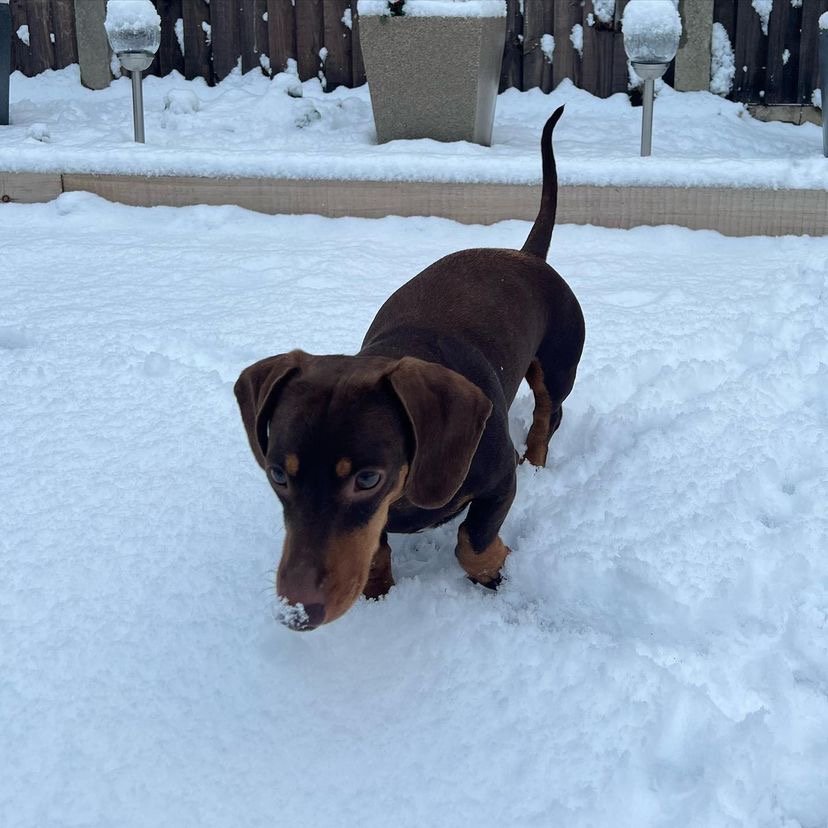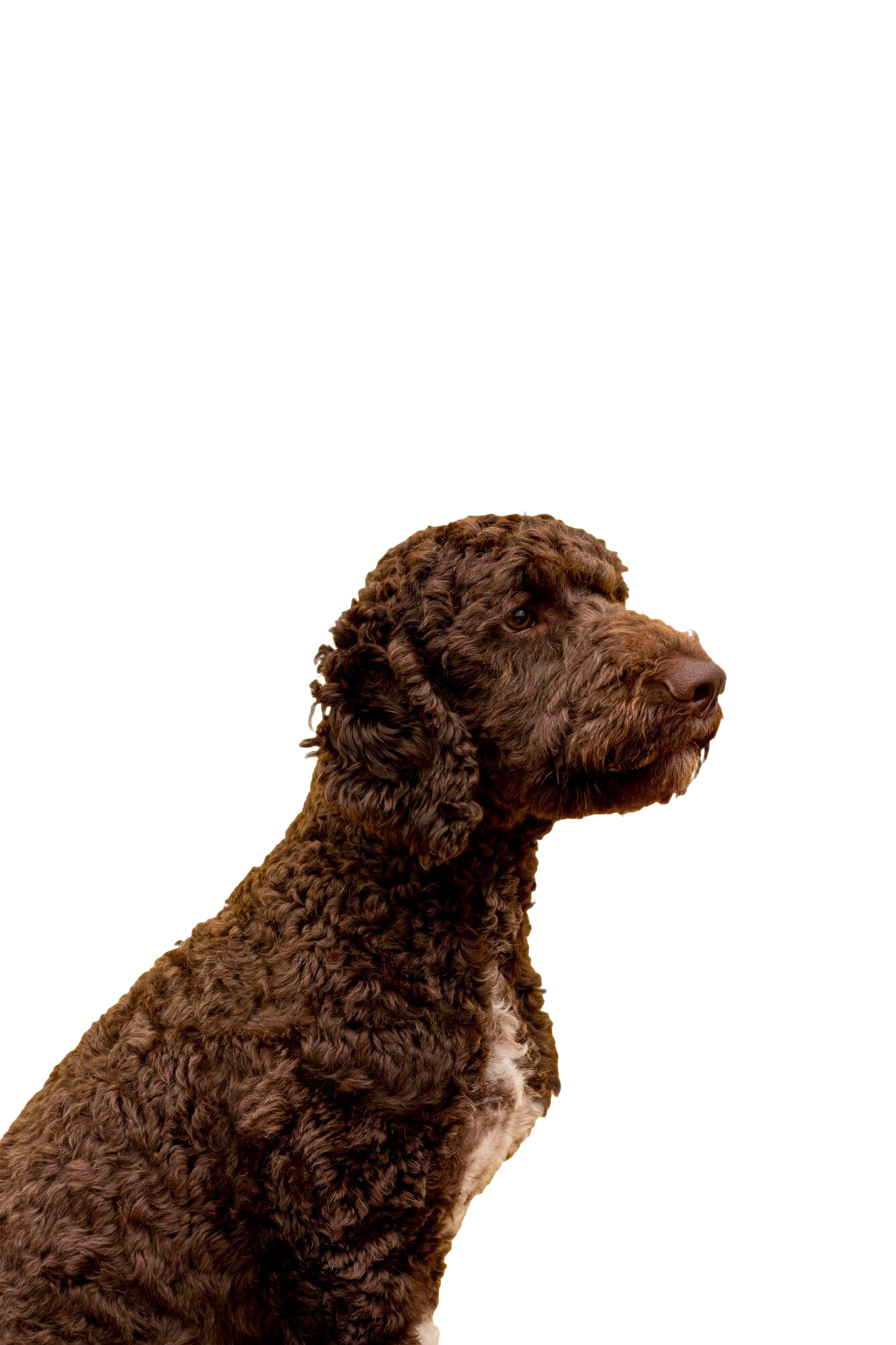
Is it okay to leave a Dachshund puppy alone for a few hours
Is it okay to leave a Dachshund puppy alone for a few hours? This is a common concern for new Dachshund owners juggling busy schedules and puppy care. Dachshunds are affectionate, intelligent dogs known for their loyalty and playful energy, but when it comes to being left alone, puppies of this breed need special consideration to stay happy and healthy.
In this comprehensive guide, we’ll dive deep into the realities of leaving your Dachshund puppy alone, the factors to consider, and practical tips to ensure your furry friend stays safe, calm, and stimulated during your absence. Whether you’re at work, running errands, or simply out for a short break, understanding your puppy’s needs will help you provide the best care possible.
Key Takeaways
- Leaving a Dachshund puppy alone for a few hours is generally acceptable but requires careful preparation.
- Puppies have limited bladder control and need frequent bathroom breaks; long absences can cause distress and accidents.
- Mental stimulation, safe spaces, and socialization are vital to reduce anxiety and destructive behavior.
- Consistent routines and gradual alone-time training help Dachshund puppies adapt to being alone.
- Understanding your puppy’s health and developmental stages helps tailor alone time to their needs.
How Long Can You Leave a Dachshund Puppy Alone?
Dachshund puppies, like most breeds, have limited ability to handle long periods of solitude. Generally, puppies under 12 weeks old should not be left alone for more than one hour. By 3 to 6 months, they may tolerate 2-3 hours if properly trained and cared for. After 6 months, many puppies can manage up to 4 hours, but this varies widely by individual temperament and training.
The Bladder Factor
Puppies have small bladders and limited control. As a rule of thumb, they can hold it for approximately one hour per month of age (e.g., a 3-month-old puppy can hold it about 3 hours). Leaving a Dachshund puppy alone beyond their bladder capacity risks accidents and discomfort, which can contribute to anxiety and behavioral problems.
Emotional Needs of a Dachshund Puppy Left Alone
Dachshunds are social dogs with strong attachments to their humans. When left alone, especially for the first time, they may experience separation anxiety, expressed through whining, barking, pacing, or destructive chewing.
To minimize distress:
- Gradually increase alone time to build confidence.
- Provide interactive toys and puzzles.
- Create a safe, comfortable environment like a crate or designated playpen.
Preparing Your Dachshund Puppy for Alone Time
Crate Training: A Safe Haven
Crate training is invaluable for Dachshund puppies. A properly introduced crate provides a cozy den where your puppy feels secure. It limits access to household hazards and helps with potty training.
Tips for crate training:
- Make the crate inviting with blankets and toys.
- Never use the crate for punishment.
- Start with short sessions and gradually increase duration.
- Feed meals inside the crate to build positive association.
Mental Stimulation When You’re Away
Boredom is a leading cause of destructive behavior in puppies left alone. Keep your Dachshund mentally engaged with puzzle feeders, chew toys, and scent games designed for solo play. Rotate toys regularly to maintain interest.
Exercise Before Leaving
A tired puppy is a calm puppy. Before leaving your Dachshund alone, provide a good dose of exercise—such as a brisk walk or active play session—to help expend energy.
Managing Bathroom Needs for Dachshund Puppies Alone
Given their small size, Dachshund puppies often need frequent potty breaks. If you anticipate being gone longer than your puppy’s bladder can handle, consider:
- Hiring a dog walker.
- Using puppy pads in a designated area.
- Setting up a puppy-proofed space with access to an indoor potty solution.
Common Challenges When Leaving Dachshund Puppies Alone
Separation Anxiety
Symptoms of separation anxiety in Dachshund puppies include excessive barking, howling, destructive chewing, and attempts to escape confinement. This condition can worsen if puppies are left alone abruptly without prior training.
How to reduce separation anxiety:
- Practice short departures and returns.
- Avoid overly emotional goodbyes.
- Use calming aids like pheromone diffusers or anxiety wraps.
Destructive Behavior
Dachshunds are curious and sometimes stubborn, so boredom or anxiety can lead them to chew furniture, shoes, or worse. Puppy-proof your home thoroughly and provide durable chew toys.
Listicle: Top Goldendoodle Breeders for Puppy Owners Concerned About Alone Time
While this article focuses on Dachshunds, many dog owners considering breeds that tolerate alone time well also look at Goldendoodles, known for their social but adaptable nature. Here’s a long list of reputable Goldendoodle breeders in locations where apartment or busy lifestyles are common, helping you find a puppy suited to your daily routine:
1. Elite Goldendoodles — Los Angeles, CA
Specializes in temperament-tested Goldendoodles adapted to family and work life balance.
2. Urban Pups Goldendoodles — New York, NY
Breeds dogs socialized to thrive in apartment environments and busy city living.
3. Heartland Goldendoodles — Chicago, IL
Focuses on health-tested puppies with easygoing personalities.
4. Sunshine Goldendoodles — Miami, FL
Known for raising family-friendly and adaptable Goldendoodles.
5. Pacific Goldendoodles — Seattle, WA
Breeds dogs with moderate energy levels, good for moderate alone time.
6. Mountain View Goldendoodles — Denver, CO
Offers puppies with balanced social and independent traits.
7. Lakeside Goldendoodles — Minneapolis, MN
Focused on mental stimulation and calm demeanor.
8. Bay Area Goldendoodles — San Francisco, CA
Known for breeding puppies accustomed to urban noise and short alone times.
9. Southern Charm Goldendoodles — Atlanta, GA
Specializes in Goldendoodles that adapt well to busy owners.
10. Metro Goldendoodles — Washington, D.C.
Offers socialized puppies ideal for city dwellers.
11. Capital Goldendoodles — Boston, MA
Focus on puppies with health guarantees and social adaptability.
12. Cascadia Goldendoodles — Portland, OR
Known for puppies with gentle temperaments and moderate independence.
13. Lone Star Goldendoodles — Austin, TX
Breeds Goldendoodles for families with active and busy lifestyles.
14. Midwest Goldendoodles — Columbus, OH
Offers puppies socialized for diverse living conditions.
15. Great Lakes Goldendoodles — Cleveland, OH
Known for balanced energy and calmness.
Health Considerations When Leaving a Dachshund Puppy Alone
Dachshunds are prone to specific health concerns, especially spinal issues like intervertebral disc disease due to their elongated back. Stress, lack of exercise, and improper environments can aggravate these risks.
To keep your puppy healthy during alone time:
- Avoid allowing them to jump off furniture unsupervised.
- Ensure they have a soft, supportive place to rest.
- Regular vet checkups are essential.
- Learn about conditions like luxating patella that can impact mobility.
Conclusion
Is it okay to leave a Dachshund puppy alone for a few hours? Yes, but with important caveats. Understanding their physical needs, emotional tendencies, and developmental stage is essential for making alone time safe and comfortable. With proper preparation — including crate training, exercise, mental stimulation, and bathroom arrangements — you can help your Dachshund puppy adjust to being alone without stress or behavioral issues.
Whether you’re a busy professional or a new pet parent, investing time in training and creating a positive environment for your Dachshund’s alone time will pay off in a happy, well-adjusted companion.
Frequently Asked Question (FAQ)
Q: How can I help my Dachshund puppy adjust to being alone without developing separation anxiety?
A: Start by practicing short departures, gradually increasing the time you are away. Keep your arrivals and departures low-key to avoid stress. Provide interactive toys and a cozy crate space. Consistency and patience are key. If anxiety persists, consider consulting a professional trainer or vet for behavioral strategies.
To explore more on caring for your Dachshund’s health and behavioral needs, visit this helpful guide on luxating patella.
For finding the perfect puppy ready to fit your lifestyle, check out Adopt Elite Puppies for healthy, well-socialized pups waiting for their forever homes.




